
Mr. Bowling Ball Arborvitae Stock Photo Image of ball, cedar 161013470
Mr. Bowling Ball Arborvitae makes a fine choice for the outdoor landscape, but it is also well-suited for use in outdoor pots and containers. It can be used either as 'filler' or as a 'thriller' in the 'spiller-thriller-filler' container combination, depending on the height and form of the other plants used in the container planting.
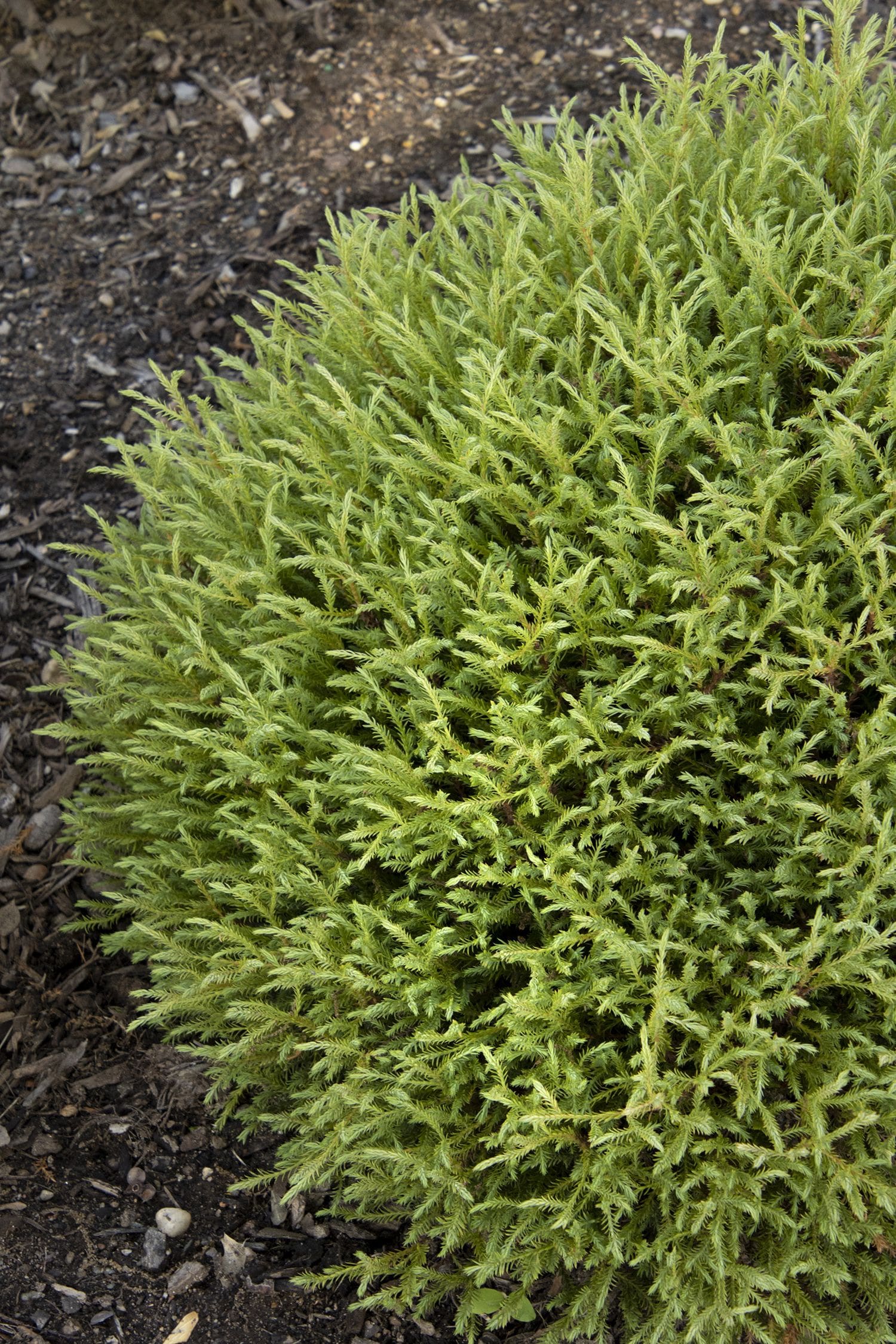
Mr. Bowling Ball Arborvitae Pahl's Market Apple Valley, MN
MR. BOWLING BALL CEDAR. Lacy, deep green foliage with excellent year-round color. A naturally rounded dwarf habit with dense evergreen foliage. Useful for low hedges, foundation plantings, and in areas where space is limited. Location: Full Sun; Ht: 24 in. - 30 in. Sp: 24 in. - 30 in. Hardy to -40 C; Sharing.
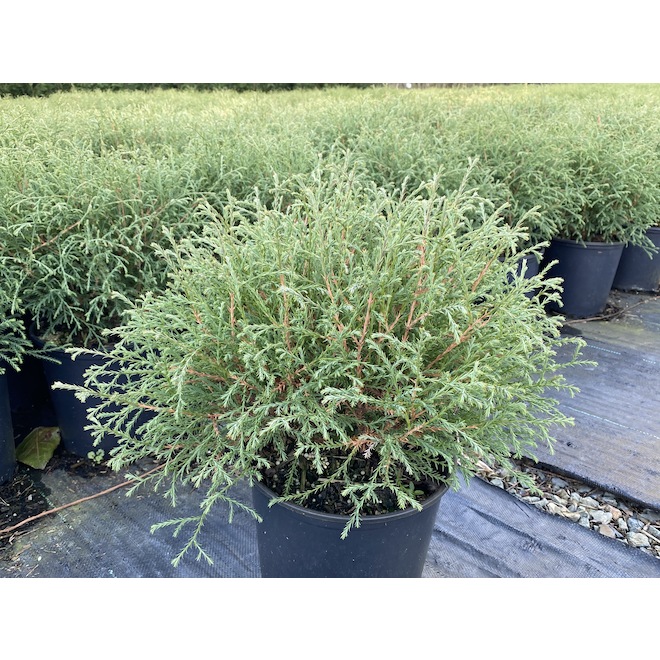
GREEN PLUS Mr. Bowling Ball Cedar 2gal Pot 829525003811 RONA
Description. Thuja occidentalis 'Mr Bowling Ball' is a dwarf variety of White Cedar which tends to be more groundcover than others in its genus. Requires very little maintenance, boasting evergreen, threadlike, sage-green foliage. High impact compact shrub used as a low hedge or dotted through borders. Height & Spread: 70cm (28").

Mr. Bowling Ball Arborvitae Nature Hills Nursery
It resembles a bowling ball, hence its name, and is prized for its soft, fine-textured foliage. Native: Thuja occidentalis is native to North America. It is predominantly found in the northeastern United States and southeastern Canada. This species naturally occurs in wet forests, swamps, and along lake shores, thriving in cool, moist, well.

Photo of the entire plant of Northern White Cedar (Thuja occidentalis
Northern White Cedar (Thuja occidentalis Mr. Bowling Ball™) General Plant Information ; Sun Requirements: Full Sun to Partial Shade: Water Preferences: Wet Wet Mesic Mesic: Soil pH Preferences: Neutral (6.6 - 7.3) Slightly alkaline (7.4 - 7.8) Leaves: Evergreen Fragrant Needled: Uses: Provides winter interest:
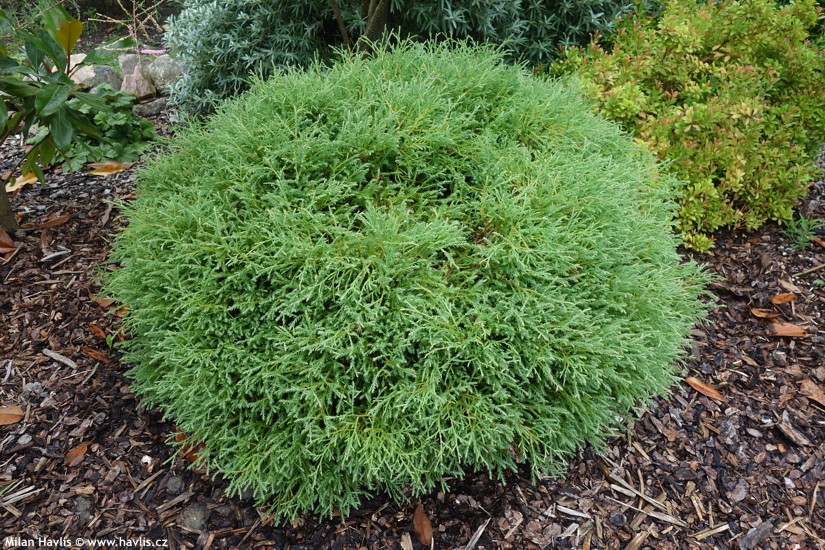
Thuja occidentalis 'Mr BOWLING BALL' Havlis.cz
Answer 1 of 4: This is a weird question, but I'm wondering if any of the bowling alleys around Milan have a pro shop where my husband can buy a bowling ball. It's a crazy souvenir, but he is a bowling coach and really wants to get a European release ball when we.

Mr. Bowling Ball® Globe Cedar Thuja occidentalis 'Bobazam' Yard
BOWLING BALL was issued to James Zampini on April 29, 2003 under the descriptive category of Live Plants. This cultivar is synonymous with Thuja occidentalis 'Linesville' of the same plant description. 'Linesville' was discovered around 1985 by Joe Stupka as a witches broom growing in a cemetery near Linesville, Pennsylvania.

Photo of the entire plant of Northern White Cedar (Thuja occidentalis
Mr. Bowling Ball® Arborvitae (Thuja occidentalis 'Bobazam') is a dwarf, rounded cultivar of the species. Also known as White Cedars, these pretty shrubs are native to the upper northeast United States. This hardy plant has all the wonderful characteristics of an Arborvitae. But it grows in a unique, compact, perfectly globe-shaped form.
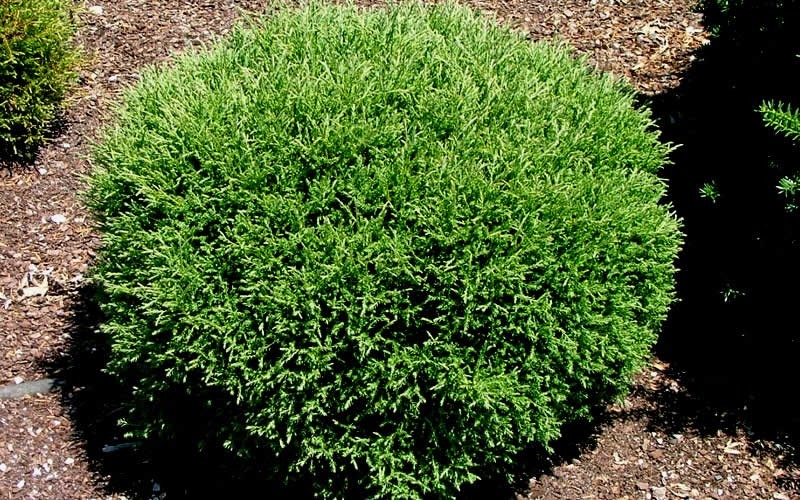
Mr. Bowling Ball Arborvitae 1 Gallon Shrub Deer Resistant Shrubs
Mr. Bowling Ball Arborvitae makes a fine choice for the outdoor landscape, but it is also well-suited for use in outdoor pots and containers. It can be used either as 'filler' or as a 'thriller' in the 'spiller-thriller-filler' container combination, depending on the height and form of the other plants used in the container planting.

Mr. Bowling Ball Cedar Norman's Garden Gallery
Mr. Bowling Ball ® Arborvitae. The silvery green, dwarf Thuja occidentalis Mr. Bowling Ball ® ('Bobazam') looks like an oversized bowling ball, except for its fine, almost lacy, texture. Actually, it is a reliable, mid-size, spherical bush that has many uses in the landscape. A Lake County Nursery 'Zam' selection from Linesville, Pennsylvania, it is hardy, durable and adaptable to.

PlantFiles Pictures Thuja, American Arborvitae, Eastern White Cedar
2Gallon (7.5L) Mr Bowling Ball Globe Cedar (Thuja) Evergreen Shrub A perfect round ball of finely textured, soft to the touch, sage green foliage. Needles are distinctly different from other cedars, almost feather-like. Requires no pruning to maintain its shape!
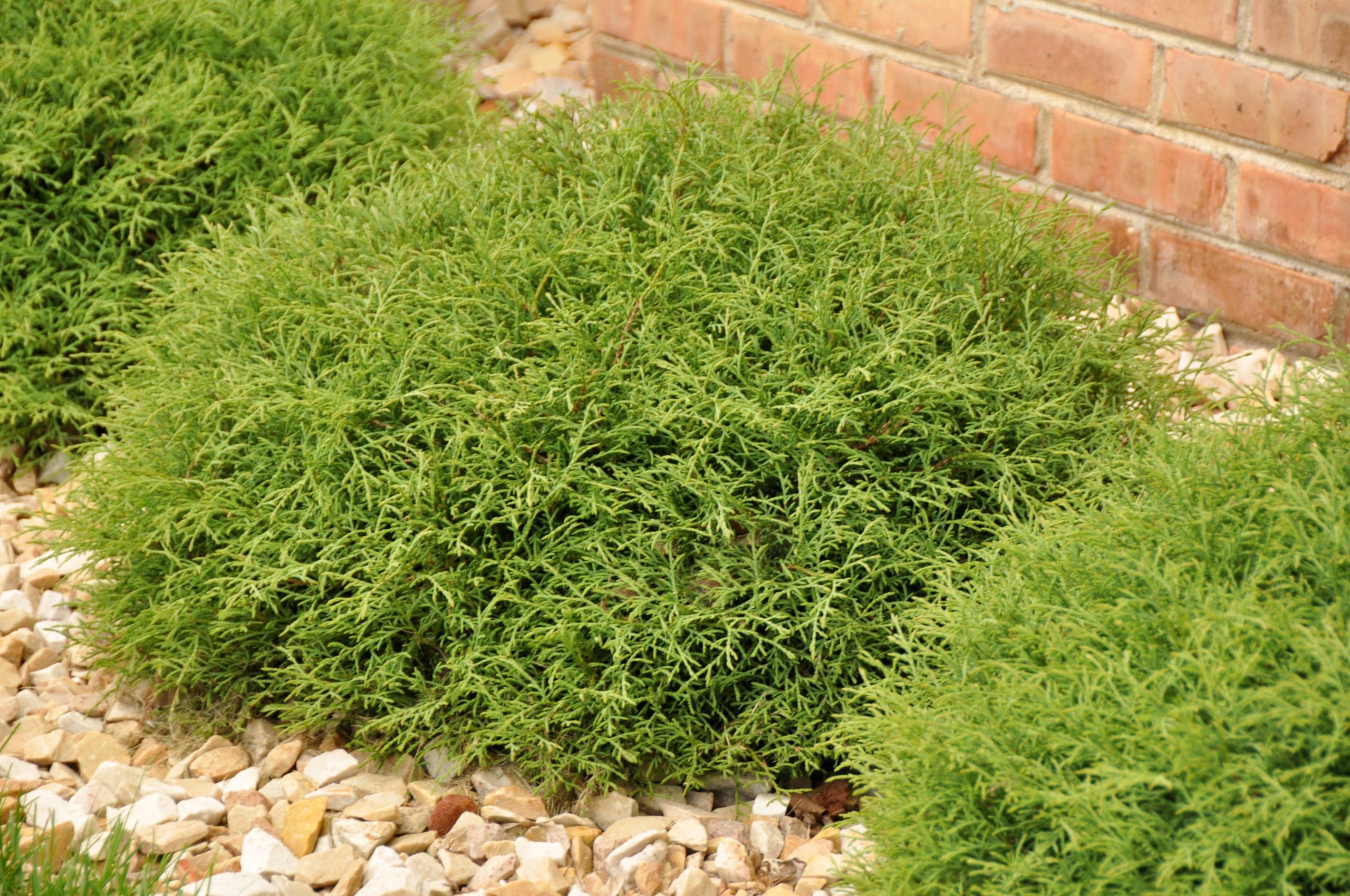
Mr. Bowling Ball Arborvitae Pahl's Market Apple Valley, MN
This evergreen shrub with finely textured sage green foliage forms a perfect, 3-foot-diameter, slow-growing globe, hence its name, Mr. Bowling Ball®. It is synonymous with 'Linesville'. Noteworthy Characteristics This plant requires no pruning or shearing to maintain its shape. It is useful in foundation plantings, borders, and containers.

Thuja occidentalis Mr Bowling Ball White cedar 'Mr Bowling Ball
Exposure. Sheltered. Plant match details will appear here. 'Mr. Bowling Ball' is a compact, rounded to mound-forming, slow-growing, evergreen, coniferous shrub with flattened sprays of ovate, scale-like, aromatic, grey- to blue-green leaves.

PlantFiles Pictures White Cedar, Eastern Arborvitae, American
Mr. Bowling Ball Arborvitae makes a fine choice for the outdoor landscape, but it is also well-suited for use in outdoor pots and containers. It can be used either as 'filler' or as a 'thriller' in the 'spiller-thriller-filler' container combination, depending on the height and form of the other plants used in the container planting.

Cedar, Mr. Bowling Ball Eastern Coville's Greenhouses
This silvery-green, dwarf Cedar looks like an oversized bowling ball, except for its fine, almost lacy, texture. It is a reliable, mid-size, spherical bush that has many uses in the landscape. It is hardy, durable and adaptable to many conditions.. 'Mr Bowling Ball' is easy to grow and adaptable to a wide range of soil conditions. Amend the.
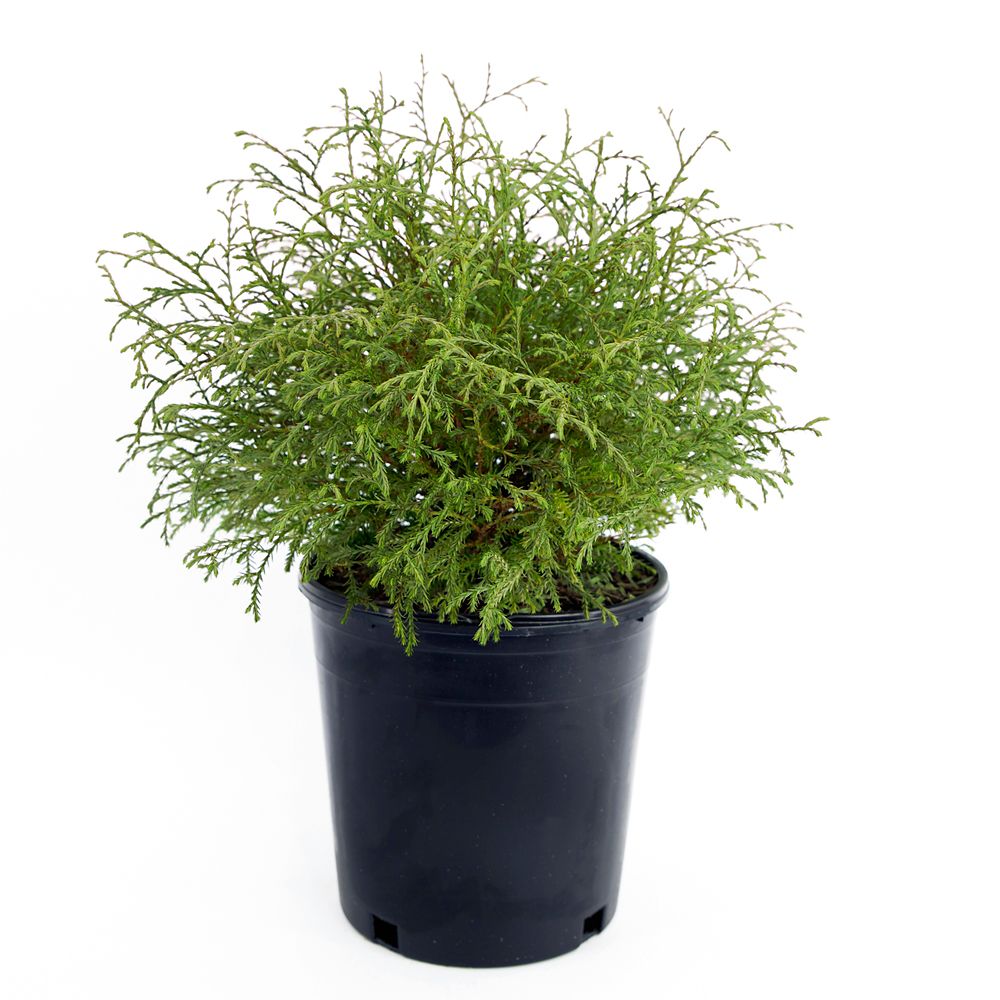
Garden Elements 2 Gallon Mr. Bowling Ball Cedar (Thuja occidentalis
More About Mr. Bowling Ball® Cedar. Thrives in enriched, evenly moist, loamy, well-drained soils; dislikes dry conditions. Provide afternoon shade in hot summer regions and protect from harsh winds. Water deeply, regularly during the first growing season to establish an extensive root system. Fertilize in early spring.